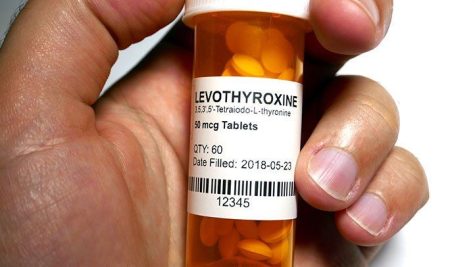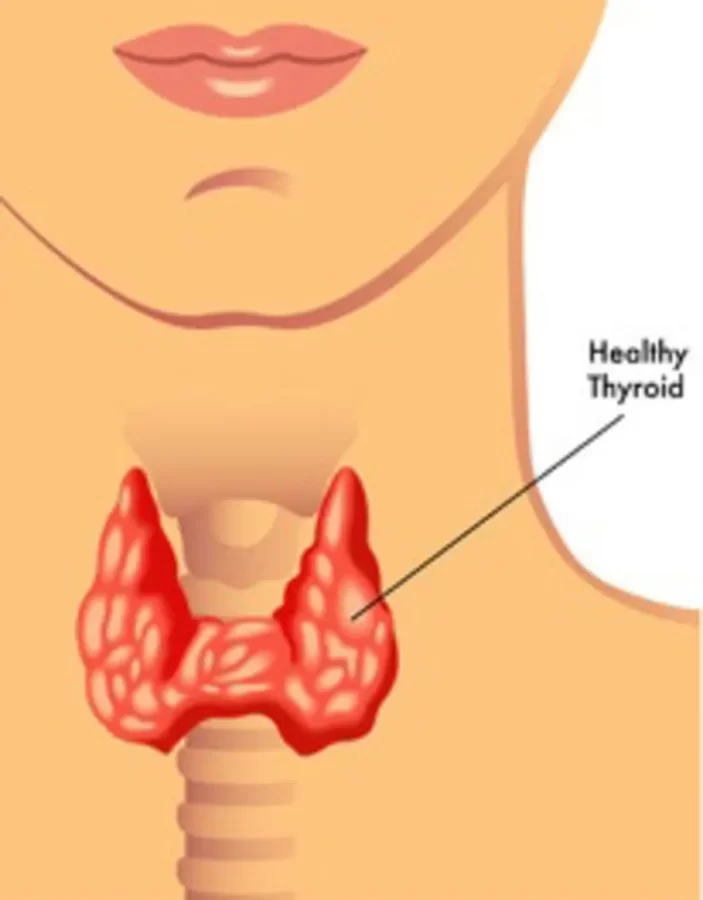Hypothyroidism: The Hidden Struggle
A Disease Of The Thyroid Experience
Thyroid Gland (Courtesy of Google Images Creative Commons by EndocrineWeb)
What is Hypothyroidism/Hyperthyroidism?
A simple explanation of hypothyroidism: your thyroid gland (butterfly shaped organ in your neck) that creates hormones which controls levels in your body. When someone has hypothyroidism (underactive thyroid), it means that their thyroid doesn’t make enough thyroid hormones for the body to regulate. Without the proper amount of hormones, the body will be negatively affected. This includes weight, hair, skin, fatigue, sensitivity to cold, depression, hoarse voice, puffy face, irregular menstrual cycle, and muscle weakness. If a person has hyperthyroidism (overactive thyroid) it’s the opposite; this means the person’s thyroid gland creates too many hormones. Too many hormones will also affect the body negatively including anxiety, nervousness, difficulty sleeping, sensitivity to heat, and mood swings. Both of these diseases can last years to a lifetime.
Causes of Hypothyroidism
Hypothyroidism is an organ disease which can be caused from several different factors (Note: this is not a disease like cancer or organ failure). Common causes include: pregnancy, iodine deficiency, autoimmune disease, and problems presented at birth. More rare causes of hypothyroidism are radiation treatment for cancer in the head and neck, pituitary disorder, genetics, and thyroiditis.
Is Hypothyroidism a Disability?
Hypothyroidism is not known as a disability because treatment and management is available. A disability is a physical or mental state in which you cannot work or live your daily life without simple struggles. While living with hypothyroidism is difficult to live with, only a few people with severe cases are eligible for Social Security Disability. Although it can be named an “invisible disability” or hidden struggle.

Treatment
Treatment for hypothyroidism is simply taking daily medication called levothyroxine that replaces the hormones and levels the body produces; this may vary from how many hormones your thyroid already makes. The medication consuming process can be tricky—you cannot eat or drink an hour before and after taking the medication. Because of this I take my medication at 4AM everyday. Treatment for hyperthyroidism is different by a few factors. There is medication which you can take that lowers the amount of hormones that are produced, radioiodine therapy which shrinks and kills extra cells in the thyroid, and surgery which removes the thyroid completely but medication has to be taken for the rest of the person’s life to manage hormone levels.
Personal Experience
In 2020 I was diagnosed with hypothyroidism when I had my blood drawn to see how my body was reacting to an antidepressant. After a few days they concluded that I had an underactive thyroid and it was one of the leading causes for my daily life struggles. When they were trying to find the cause they ruled out pretty much everything. The final conclusion was that it was most likely caused by a genetic mutation (change in cells DNA) that I had inherited. Since I had gone my whole life without treatment, I was struggling without even knowing it. After receiving levothyroxine my health, mood, and depression slowly got better.
Your donation will support the student journalists of Brunswick High School. Your contribution will allow us to purchase equipment. Our goal is to purchase some updated and much needed cameras for the program.



































